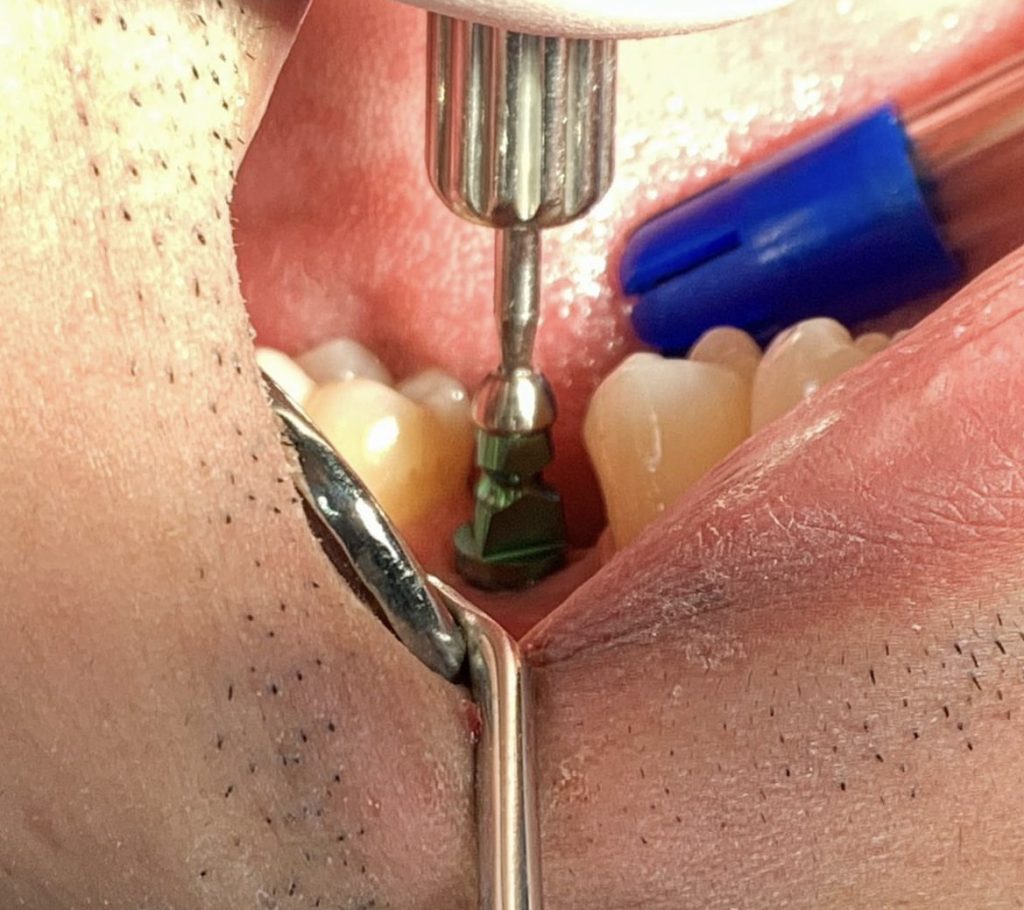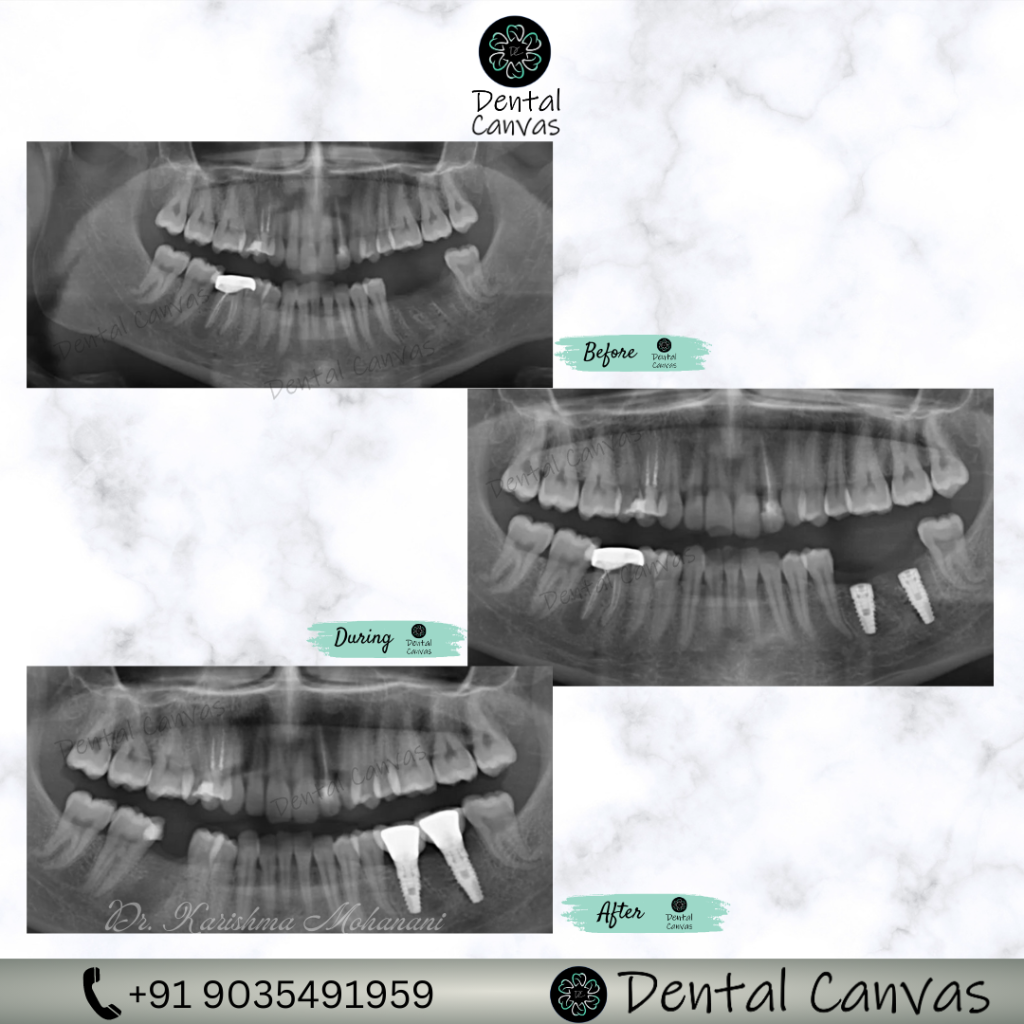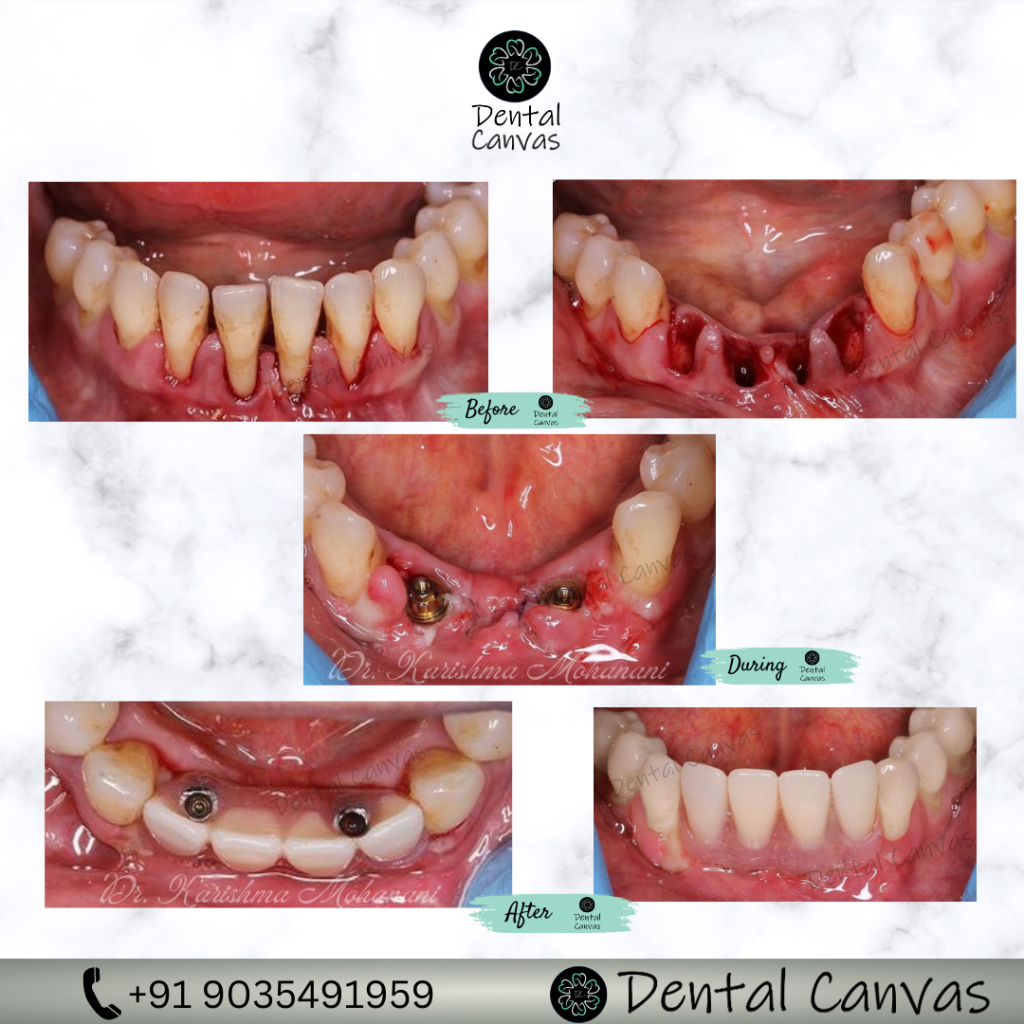In the field of modern dentistry, dental implants have revolutionized the way we address tooth loss and restore smiles. Missing teeth can significantly impact self-esteem, oral health, and overall quality of life. Dental implants offer a permanent and effective solution, providing patients with a natural-looking and functional smile.
Dental implants are artificial tooth roots usually made of titanium alloy, a biocompatible material that integrates seamlessly with the jawbone. The implant is surgically placed into the jawbone, where it fuses with the bone through a process called osseointegration. Once fully integrated, the dental implant acts as a sturdy foundation for a dental crown, bridge, or denture, depending on the number of missing teeth.

Benefits of Dental Implants
- Aesthetics: Dental implants provide the most lifelike solution for missing teeth, enhancing the overall appearance and boosting self-confidence.
- Functionality: Unlike removable dentures, dental implants offer stability, enabling patients to eat, speak, and smile without worry.
- Longevity: With proper care, dental implants can last a lifetime, making them a cost- effective and permanent solution.
- Preserving Jawbone: Dental implants stimulate the jawbone, preventing bone loss and maintaining the facial structure’s integrity.
- Dental Health: Dental implants do not require altering adjacent teeth, preserving natural dentition and ensuring better oral health.

Who is a suitable candidate for dental implants?
A suitable candidate for dental implants typically meets certain criteria, which include:
- Good Oral Health: Candidates should have overall good oral health, with healthy gums and sufficient bone density in the jaw to support the implant. Healthy gums are essential to ensure proper healing and prevent complications.
- Adequate Bone Volume: Sufficient bone volume and quality are necessary to anchor the dental implant securely. In cases where bone density is insufficient, bone
grafting procedures may be recommended to augment the bone. - No Active Gum Disease: Candidates should not have active gum disease or untreated periodontal issues, as this can affect the success of the dental implant procedure. Gum disease should be treated and controlled before proceeding with the implant.
- General Health: Candidates should be in good overall health and free from uncontrolled chronic conditions that could hinder the healing process or pose risks
during the surgery. - Commitment to Oral Hygiene: Candidates must be willing to commit to excellent oral hygiene practices, including regular brushing, flossing, and dental check-ups, to maintain the longevity of the dental implant.
- Non-Smoker: Smoking can significantly impair the healing process and increase the risk of implant failure. Ideally, candidates should be non-smokers or be willing to quit smoking during the healing period.
- Absence of Teeth: Dental implants are ideal for individuals with one or more missing teeth who desire a permanent and natural-looking replacement option.
- Age Considerations: While age itself is not a determining factor, candidates should be at a stage of jawbone development where dental implants can be placed securely. In some cases, young individuals may need to wait until their jawbones have fully developed.



